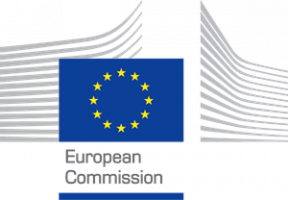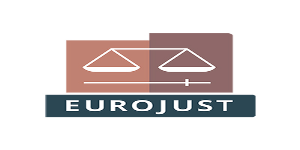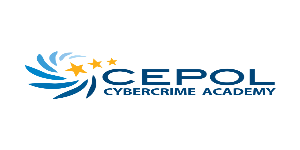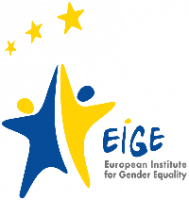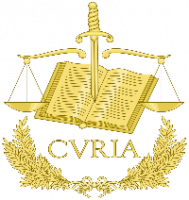About Sector
The rule of law forms the basis of the European Union’s legal framework, playing the central role in upholding fundamental rights and values. It has a decisive impact on lives of all people, and it is applied at all levels of government. In its efforts to promote and strengthen the standards of rule of law, the EU is actively looking for implementing partners, both among Member States and countries engaged in the accession process.
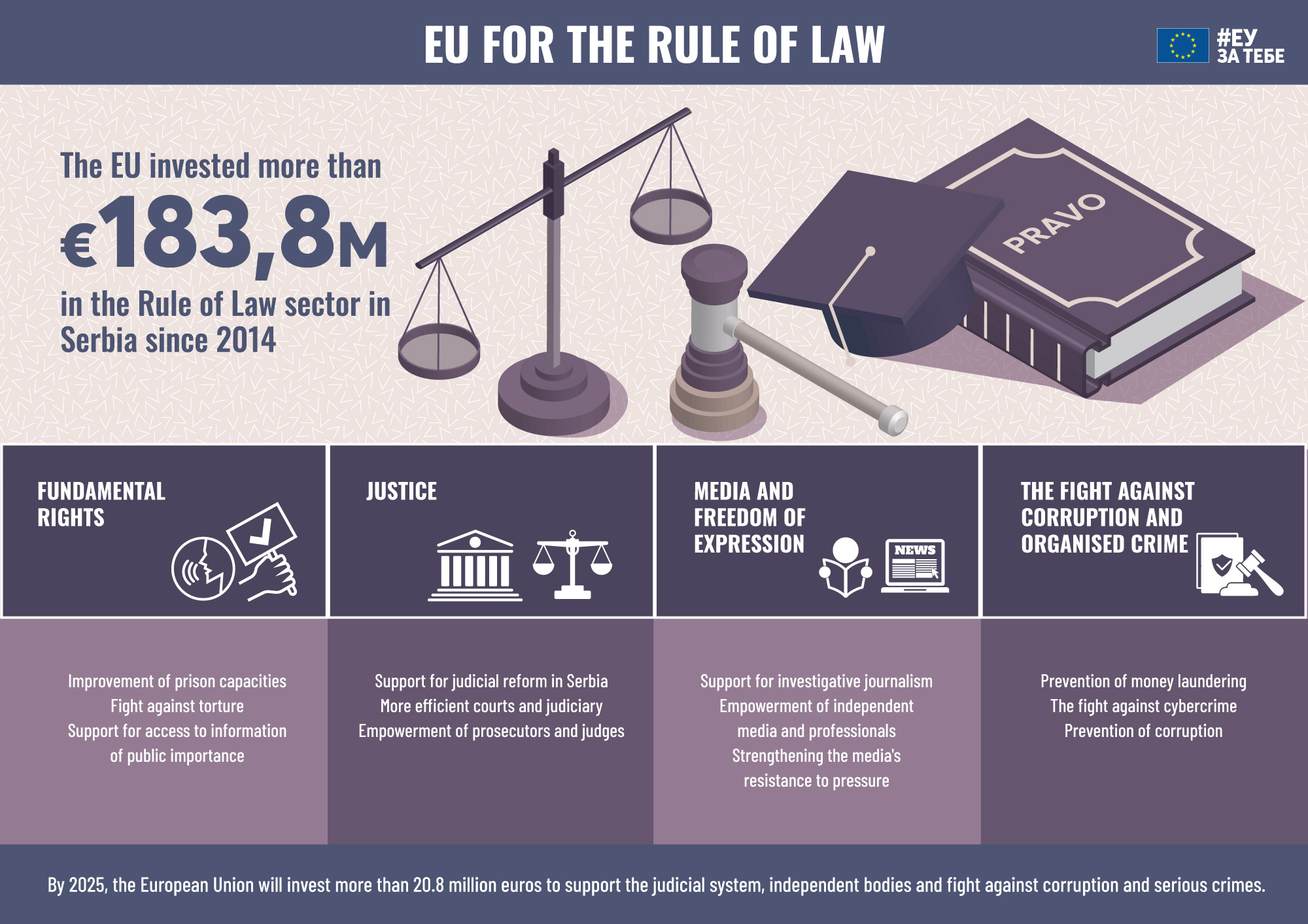
Currently, there are ten projects aimed at promoting and strengthening the rule of law in Serbia, divided into several subsectors: judiciary, fundamental rights, media, and fight against corruption and money laundering. Besides, support in these areas is being steadily offered through the European Instrument for Democracy and Human Rights (EIDHR), as well as through support provided to civil society organisations and media. Projects focus on reforms, i.e. capacity building and strengthening of the Ministry of Justice, Ministry of Interior, judicial authorities, media, correctional services and other institutions.
Judiciary
The EU Strategy for the Western Balkans has made clear that progress in the rule of law is among essential prerequisites, if not the crucial criterion, for accession. The rule of law principle implies that all members of society, including state institutions (the government and parliament), are equally subject to the law and under the watchful eye of independent courts, regardless of the political majority in power. That is why the judiciary system in Serbia needs to undergo a comprehensive reform in order to achieve improvements in several main directions: efficiency, independence responsibility, professionalism, and impartiality.
Our programme of cooperation in those sectors puts at Serbia’s disposal a comprehensive set of tools to promote necessary reforms. However, the overall impact and results of those reforms are to a great extent conditioned by the political will to make headway in crucial areas (e.g. judiciary independence, fight against corruption, etc.) and ensure proper deployment of human and financial resources.
On this reform path, the European Union offer strong support and assistance for the judiciary in Serbia. Significantly, the results achieved in recent years in the area of case backlog reduction and alignment of case-law have been exceptional, largely due to systemic assistance offered by the EU to Serbian institutions.
Fundamental Rights
The European Union is based on the values of respect for human dignity, freedom, democracy, equality, the rule of law, and observance of human rights, including minority rights. That is why the EU actively supports protection of human rights in Serbia via different programmes at both national and regional level. When it comes to national programmes, there are numerous forms of assistance offered by the EU, implemented either in cooperation with institutions of the Republic of Serbia or civil society organisations, both striving toward the same final goal—to safeguard fundamental rights of all citizens, regardless of age, sex, abilities, ethnicity, or sexual orientation to the fullest extent possible.
Media and Freedom of Expression
Freedom of expression and media freedom are among key pillars of a functional democracy. Independent and free media are essential not only for dissemination of factual and reliable information, that allow citizens to make informed decisions and play an active part in the democratic process; they’re also essential for holding governments accountable, acting as a key ally in the process of comprehensive enforcement of the rule of law.
EU assistance in this sector in Serbia is focused on a number of key areas: enabling an environment conducive to freedom of expression and free media; strengthening journalist and media professionals’ associations; media sustainability; investigative journalism; fostering media professionalism and independence; strengthening resilience of media to external pressures.
Fight against corruption and serious and organized crime
Fight against corruption and serious and organised crime is one of the main priorities of Serbia on its EU accession path. However, these areas are faced with a number of challenges, such as the need to improve track record on investigations, indictments and final convictions in high-level corruption cases and organised crime, including money laundering.
In this regard, the European Union provides active support for Serbia in the form of various projects funded by the EU with a clear, long-term goal: to prevent and fight against corruption and serious and organised crime in Serbia.

List of key local partners/organisations
- Ministry of European Integration
- Ministry of finance
- Ministry of Justice
- Ministry of Interior
- Supreme Court of Cassation
- Judicial Academy
- The High Court Council
- Anti-Corruption Agency
- Ombudsman of Serbia
- Commissioner for Information of Public Importance and Personal Data Protection
- The Commissioner for the Protection of Equality
- Office for Human and Minority Rights
- The Office for Cooperation with Civil Society
- Ministry of Culture and Information
In the period between 2014-2022, EU assistance for the rule of law, judiciary and home affairs reform in Serbia has reached more than EUR183,8 million. The funds are used to support independent and efficient judiciary; efficient protection of citizens and communities; human rights observance; proper enforcement of law; and fight against corruption, organised crime and human trafficking.
The rule of law is an essential prerequisite for peace, security, and prosperity as it strengthens the social and economic capacity of a country, ensures a healthy business environment, economic resilience and consumer protection, and encourages investment, job creation and development. Respect for and protection of fundamental human rights enables the creation of a vigorous, just, and democratic society.
EU assistance is implemented in cooperation with the Government of Serbia and donations are used to advance the development of Serbia. The European Union remains the leading supporter and donor of Serbia in terms of reform support and strengthening of institutions necessary for the functioning of rule of law.
